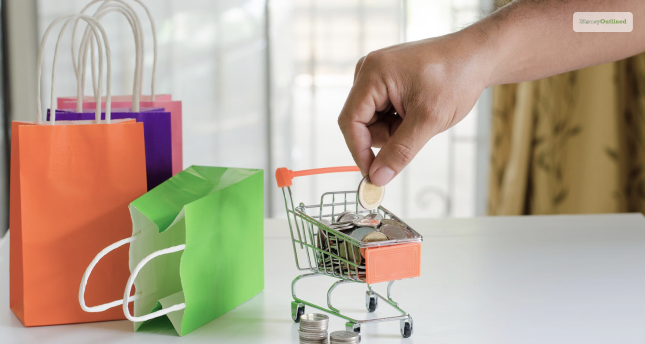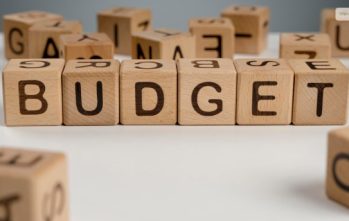Table Of Contents
- What Do You Mean By Impulsive Buying?
- Signs Of Impulsive Shopping
- What Is Compulsive Buying?
- Signs Of Compulsive Buying
- Impulsive Vs Compulsive Buying: Causes
- Impulsive Vs Compulsive Buying: Psychology
- Impulsive Vs Compulsive Buying: Examples
- Impulsive Buying Example
- Compulsive Buying Examples
- Impulsive Vs Compulsive Buying: How To Deal With Both
- Notice Your Habits Of Spending
- Get To The Roots Of Your Problem
- Quit The Credit Cards
- Avoid Any Temptation
- Go On A Waiting Period To Buy
- Channel The Energy Someplace Else
- Seek Professional Help
- Impulsive Vs Compulsive Buying: The Bottom Line
- What Do You Mean By Impulsive Buying?
- Signs Of Impulsive Shopping
- What Is Compulsive Buying?
- Signs Of Compulsive Buying
- Impulsive Vs Compulsive Buying: Causes
- Impulsive Vs Compulsive Buying: Psychology
- Impulsive Vs Compulsive Buying: Examples
- Impulsive Buying Example
- Compulsive Buying Examples
- Impulsive Vs Compulsive Buying: How To Deal With Both
- Notice Your Habits Of Spending
- Get To The Roots Of Your Problem
- Quit The Credit Cards
- Avoid Any Temptation
- Go On A Waiting Period To Buy
- Channel The Energy Someplace Else
- Seek Professional Help
- Impulsive Vs Compulsive Buying: The Bottom Line
Impulse Buying Vs Compulsive Buying: What Are The Differences?
Are you really going to sit here and deny the fact that you absolutely love a good sale? It?s okay; we all do. Going to the shops, looking for a good deal, and purchasing items that please your soul is something I will call ?retail therapy.? It is the best feeling in the world. Hitting the shops even when a minor inconvenience happens. However, it may turn into a major problem in no time. Impulsive vs compulsive buying behaviors are the two types that can eventually result in regret and financial issues.
While some people often interchange these two words, they are not really the same. There are, in fact, important points of differentiation between them both.
In this article we shall discuss all the differences between impulsive vs compulsive buying behavior and how they both can be quite toxic for your wallet and bank balance.
What Do You Mean By Impulsive Buying?

Impulsive buying means purchasing things that an individual had no plans of buying. It usually happens pretty unexpectedly and in the heat of the moment. It is mostly inspired by any ?can?t miss? sale or abruptly coming across any desirable item that you simply cannot give up on. I know, we all have been there, and resisting a good sale or something you have been wanting for a long is hard to give up on.
In general, impulse purchases are completely harmless as long as they remain in your budget. But it is unfortunate that that is not how it happens. In most cases, impulsive buying leads to overspending, thus wrecking an individual?s personal finances.
Signs Of Impulsive Shopping
Impulsive shopping is a practice that happens to many people on occasion. Some common signs of impulse buying may include:
- Spending more money than you intend to.
- Visiting stores that trigger your impulsive buying behavior.
- Feelings of immediate gratification after the unplanned purchases.
- Frequent return of impulse purchases because of regret.
?Research suggests that impulsive shopping increased during the COVID-19 pandemic. Feelings of stress and anxiety combined with more time at home may have contributed. This demonstrates how people often use shopping to cope with emotions, relieve distress, and improve mood.?
What Is Compulsive Buying?

Compulsive buying, in comparison to impulsive buying, does not just involve spending more than the intended amount of money. It includes a compulsive need to purchase items, most of which you do not even need. People engaging in compulsive buying do this to improve their self-image and their mood, cope with stress, and get social support.
Compulsive buying generally results in strong feelings of guilt, shame, and remorse. People who compulsively buy are more likely to have legal, financial, and relationship issues due to their habit of overspending.
While it does not have recognition as a distinct condition, many psychological professionals tend to believe that compulsive buying is infarct a type of behavioral addiction.
While estimates vary, some research indicates that anywhere between 1% and 30% of the U.S. population may engage in compulsive buying behavior.
Signs Of Compulsive Buying
As buying is an activity that one would have to do to some extent, it may be tough to tell when the habit has crossed the line. Many people tend to shop even way more than they should. However, that does not mean they are engaging in compulsive buying behavior.
Here are some of the most critical signs of compulsive buying:
- A decline in financial health or excessive credit card debts.
- Troubled relationships because of shopping or spending way too much.
- Hiding the bought products of the amount spent.
- Lost of control at the time of the shopping sprees.
- Buying more to deal with the guilt of the previous shopping spree.
- Buying to get rid of the feeling of emotional distress.
- Spending way more than a person can afford.
Impulsive Vs Compulsive Buying: Causes

Impulsive vs compulsive buying generally stems from the pleasing feelings that one gets when one makes a purchase ? unplanned or planned. The act of buying releases dopamine and endorphins in the brain, which create these pleasing emotions. This compels people to engage in similar behaviors and experience the same feelings over and over again.
Some of the most common reasons why people make compulsive or impulsive purchases are:
- They feel the urge to buy things that are on sale, and the deal is just ?way too good to give pass up.?
- They buy things, regret it, and then return the things they bought.
- If they like to collect a few items, they buy to complete each of the collections. This satisfies them.
- They buy to get rid of the feeling of emotional distress.
- They purchase to be able to maintain their image as someone sophisticated who has impeccable taste.
- These people are always on the hunt for some ?trophy? products that they feel like they must own to feel happy.
Impulsive Vs Compulsive Buying: Psychology

The major point of differentiation between impulsive vs compulsive buying lies within the actual motivation or the reason for which an individual makes a purchase. At the same time, impulse buying is unplanned and occurs in reaction to any external trigger, like seeing a desirable item in the store. On the other hand, compulsive buying is more inclined towards inward motivations.
A person engaging in compulsive shopping will plan the whole shopping experience as a technique to relieve or avoid any internal feeling that makes them uncomfortable, like anxiety, stress, or depression.
Compulsive buying also has the potential to draw in negative consequences in comparison to impulse buying. These effects may include falling into financial potholes, getting into arguments with family members, and going through problems at work.
People who are more keen on buying compulsively are more likely to develop a pattern of addictive behavior. They shop as much as they can with the intention to fend off their anxiety and stress. This is exactly how an addiction to shopping develops, or this is how a Shopaholic is born.
Impulsive Vs Compulsive Buying: Examples
Here are two very easy examples of impulsive vs compulsive buying that will allow you to have a better picture of the differences between the two.
Impulsive Buying Example
Let us take, for instance, Taylor, who is into face and beauty products. At the time of the Black Friday sale in mid-November, the biggest online websites give the best deals on products and services. Taylor was so compelled by the 50% discount on the best brands that she ended up buying impulsively. However, there were some drawbacks. After the products reached her, Taylor realized that some of them were just about to expire. There was no way that she could use those products before they expired.
Compulsive Buying Examples
Compulsive buying is a little different when it comes to a shopping addiction. Let us assume you had a bad day at work. None of the things went right that day, your boss yelled at you. You missed the train, and it could get worse than this. You feel an emotional breakdown on its way. But you are nowhere prepared to face it. So, you do the best thing you can do ? retail therapy.
You step inside Walmart, for instance, and look around. Due to the excessive emotions, you end up buying baby clothes worth $500. The fun fact here? You have no kids at all. You literally bought clothes for a baby just because they looked ?cute? and did not want to experience your bad emotions. While you feel happy immediately after the purchase, the moment you step inside your house, the truth settles in. This is when the guilt seeps in. So, the next thing you do is go to the store to return the products. This is a never-ending cycle and keeps on happening to the point where the person requires medical help.
Impulsive Vs Compulsive Buying: How To Deal With Both

Impulsive and compulsive shopping are two completely different problems that need different solutions. However, here are some tactics that can help you collectively handle both like a pro.
Notice Your Habits Of Spending
The most important step in trying to have control over your spending habits is to first realize that you have them. You cannot change something till you realize you have them.
By keeping track of your spending and defining your needs vs your wants, you will notice where the money is actually going. If you realize that you are not sticking to the budget, you can pinpoint the buying behaviors that are pushing you off the rails.
Get To The Roots Of Your Problem
Once you accept that there is indeed a problem, try to find out where it is coming from. It is generally quite easy to find out the exact reason behind your unplanned spending.
We may typically spot it when we are shopping to feel a bit good on a bad day. Otherwise, it may be more challenging to figure out. These deep-rooted issues instigate compulsive buying in individuals.
Quit The Credit Cards
There are multiple benefits of using a credit card, but they make it way easier to overspend. Credit cards let you overspend the money that you do not have. Hence, you are no longer limited by the lack of money in your bank. So, you can just overspend to your heart?s desire.
This is the same when it comes to the ?buy now, pay later? options. If you realize that you overspend quite often, try not to use your credit cards. This will build a natural spending barrier for you.
Avoid Any Temptation
Temptations surround us every day. And for someone who is already struggling with compulsive or impulsive spending, these temptations can be pretty tough to overcome.
In this case, it is best to avoid them overall. You may avoid temptations and reduce your buying by:
- Maintaining distance with your favorite store. Do not even visit their website.
- Unsubscribe from their emails. They make you want to spend even more.
- Unfollow all the influencers. All they do is give you major FOMO and push you to buy things you do not even need.
- Avoid online shopping if that turns out to be a trigger.
- Go on a shopping ban for a short period of time.
Go On A Waiting Period To Buy
Impulse buying, just as the name suggests, is more of an impulsive action. At that very moment, you feel a terrible urge to spend. And you do it even before you get the time to sort it out with yourself.
There are quite a few people who may overcome their habit of overspending by going on a waiting period. When you see something that you desperately want to buy, wait for a while. Go on stand-by for at least 24 hours or a week before you pull the trigger.
You may realize during the waiting period that you no longer want the product. And if you still feel like you need it, you get the confirmation that it was not an impulse purchase after all.
Channel The Energy Someplace Else
If you feel like you indulge in impulsive or compulsive shopping way too much, it might be a case of filling a void through shopping.
Rather than expecting that you will have a lot of willpower at that very moment, try to fill the time doing other activities. If you have a bad day and get the urge to spend, start painting or pottery for a change.
Seek Professional Help
If none of these techniques work for you, try to reach out to a professional. There is no one who can help you better than a professional. We all know that compulsive shopping stems from deeper issues that may not be solved at a surface level.
Deeper issues need intense care. A medical professional can actually break down your habit of overspending and give you better coping mechanisms for your issues.
Impulsive Vs Compulsive Buying: The Bottom Line
Now you are aware of the exact differences between impulsive vs compulsive buying. Therefore, you can expect yourself to be a bit more mindful about how you spend your money. While everyone has fallen into the trap of impulse buying at some point in their life, they have pulled themselves out as well.
If you find it difficult to pull yourself out of it, the tips in this article may be helpful for your needs. However, if they do not work out either, it is better to seek medical help for the underlying causes of your overspending.
Continue Reading:











Leave A Comment